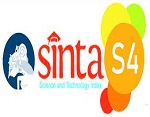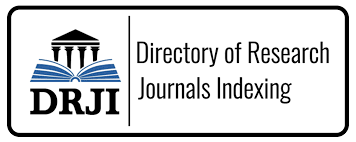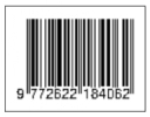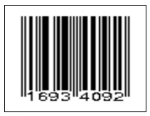Pengaruh Pengalaman Magang, Minat Kerja, dan Soft Skill terhadap Kesiapan Kerja Mahasiswa Fakultas Ekonomi dan Bisnis Universitas PGRI Palembang
DOI:
https://doi.org/10.31851/jmwe.v22i1.16678Abstract
ABSTRAK
Penelitian ini bertujukan guna mengetahui pengaruh soft skills, minat kerja, dan pengalaman magang terhadap kesiapan kerja mahasiswa Fakultas Ekonomi dan Bisnis Universitas PGRI Palembang. Metode yang diterapkan dipenelitian ini ialah metode kuantitatif asosiatif. Teknik pengambilan sampel dipenelitian ini menerapkan purposive sampling sehingga diperoleh sampel sejumlah 100 responden. Hasil penelitian menampakkan bahwasanya faktor pengalaman magang, minat kerja, dan soft skills bepengaruh signifikan terhadap kesiapan kerja mahasiswa Fakultas Ekonomi dan Bisnis Universitas PGRI Palembang, baik secara parsial maupun simultan.
Kata Kunci: Pengalaman Magang, Minat Kerja, Soft Skill, dan Kesiapan Kerja.
ABSTRACT
This study sought to ascertain the impact of soft skills, work interest, and internship experience on students' preparedness for the workforce at Universitas PGRI Palembang's Faculty of Economics and Business. An associative quantitative method is used in this investigation. Purposive sampling was used in this study's sample technique to obtain samples from 100 respondents. The study's findings demonstrated that the factors of internship experience, work interest, and soft skills had a substantial impact on students' work readiness at Universitas PGRI Palembang's Faculty of Economics and Business, both partially and simultaneously.
Keywords : Internship Experience, Work Interest, Soft Skills, and Job Readiness.
References
Anggriawan, E. F. (2014). Pengaruh Pengalaman Kerja, Skeptisme Profesional Dan Tekanan Waktu Terhadap Kemampuan Auditor Dalam Mendeteksi Fraud (Studi Empiris Pada Kantor Akuntan Publik Di Diy). Nominal, Barometer Riset Akuntansi Dan Manajemen, 3(2). https://doi.org/10.21831/nominal.v3i2.2697
Barlian. E. (2016). Metodologi Penelitian Kualitatif & Kuantitatif. Sukabina Press.
Elfindri. (2011). Soft Skill Untuk Pendidik. Baduesse Media.
Ikbal, M. (2011). Pengaruh Motivasi Terhadap Minat Mahasiswa Akuntansi Untuk Mengikuti Pendidikan Profesi Akuntasi (PPAk). Jurnal Akuntansi , Ekonomi, Dan Manajemen Bisnis.
Istnamuyassaroh. 2020. Pengaruh Tingkat Pendidikan, Hardskill, dan Softskill terhadap Kinerja Karyawan PT. Kencana Cakra Buana, Kab. Bogor. Jurnal Ekonomi dan Bisnis. Universitas Islam Semarang.
Khairunnisa, S., & Kurniawan, R. (2020). Faktor-faktor yang mempengaruhi minat mahasiswa akuntansi untuk berkarir di bidang perpajakan (studi pada Mahasiswa Akuntansi Universitas Andalas). Jurnal Akuntansi Trisakti, 7(2), 175–190.
Kuswati. (2015). ”Faktor-Faktor Yang Mempengaruhi Kesiapan Kerja Mahasiswi Menjadi Bidan. Jurnal Kesiapan Mahasiswa Menjadi Bidan, 05, 296.
Marie, Z. S. (2016). Student Intership Experiences and Learning Opportunities: Mixed Methods Study. Journal of Business & Banking.
Muspawi, M., & Lestari, A. 2020. Membangun Kesiapan Kerja Calon Tenaga Kerja. Jurnal Literasi Sosiologi, 4, (1), 111-117. Desember 2020
Susanti, S., Rasuli, H. M., & Azhar, A. (2015). Faktor-faktor yang Mempengaruhi MInat Mahasiswa Akuntansi untuk Mengikuti Pendidikan Profesi Akuntansi (PAk). Jurnal Bidang Ilmu Ekonomi.
Suyanto, F., Rahmi, E., & Tasman, A. (2019). Pengaruh Minat Kerja Dan 97 Pengalaman Magang Terhadap Kesiapan Kerja Mahasiswa Fakultas Ekonomi Universitas Negeri Padang. Jurnal Ecogen, 2(2), 187. https://doi.org/10.24036/jmpe.v2i2.7311
Wibowo (2011). Kesiapan Kerja h. 324
Yulianto, C. (2018). Korelasi Antara Kemampuan Soft Skills dan Prestasi Belajar Dengan Kesiapan Kerja Siswa Kelas XII SMK Taruna Bangsa Bekasi.
Yusuf, M, A. (2010). Kiat Sukses dalam Karier. Ghalia Indonesia.
Downloads
Published
Issue
Section
License
Copyright (c) 2025 Jurnal Media Wahana Ekonomika

This work is licensed under a Creative Commons Attribution-NonCommercial 4.0 International License.
The copyright of the received article shall be assigned to the publisher of the journal licensed under a Creative Commons Attribution-NonCommercial 4.0 International License in line with the license, authors and any users (readers and other researchers) are allowed to share and adapt the material only for non-commercial purposes. In addition, the material must be given appropriate credit, provided with a link to the license, and indicated if changes were made. If authors remix, transform or build upon the material, authors must distribute their contributions under the same license as the original.






















